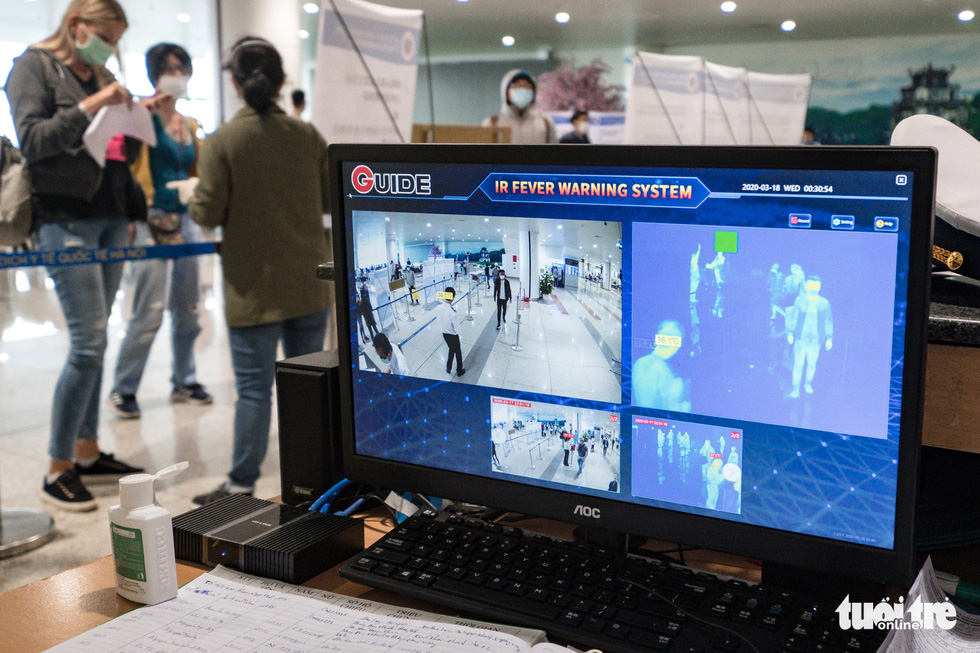International arrivals who have been fully vaccinated against COVID-19 will only have to quarantine for three days upon arriving in Vietnam starting next year, according to the latest decision by the Ministry of Health.
The health ministry on Thursday evening issued a document on COVID-19 prevention measures for international arrivals, which will take effect on January 1.
Accordingly, all international arrivals will have to test negative for the novel coronavirus within 72 hours prior to their entry in Vietnam, except for children under two years old.
They are required to install the PC-Covid mobile app to file health declarations and have their health monitored upon arrival.
Those who have been fully immunized against COVID-19 or have recovered from the disease will be required to quarantine either at home or in other accommodation establishments for three days.
They will undergo a reverse transcription polymerase chain reaction (RT-PCR) COVID-19 test on the third day of quarantine.
If the result comes back negative, they will need to have their health monitored for another 11 days.
If it is positive, competent authorities will handle the case in accordance with COVID-19 control protocols.
People who have not been fully vaccinated will be required to self-isolate at home or accommodation establishments for seven days and undergo COVID-19 testing on the third and seventh days of quarantine.
People under 18 years old or over 65 years old, as well as pregnant women and those with underlying conditions, will be allowed to quarantine with their caretakers.
The caretakers have to be fully inoculated or have recovered from COVID-19.
Vietnamese returnees and their spouses and children will be provided with vaccination for free if they have not been fully inoculated.
All arrivals have to pay for the cost of COVID-19 testing, quarantine, treatment, and related expenses.
According to current regulations, which were implemented in August, international arrivals are required to stay in concentrated quarantine facilities for seven days and have their health monitored for another seven days afterward.
Last week, Deputy Prime Minister Pham Binh Minh approved a plan to relaunch regular international commercial flights between Vietnam and destinations with high COVID-19 safety levels on a trial basis from January 1.
Due to the pandemic, the Vietnamese government has closed the county’s borders since March 2020, with an exception for Vietnamese repatriates, foreign experts, diplomats, investors, skilled workers, and students, who are allowed to enter the Southeast Asian country if meeting strict quarantine requirements.
Recently, the country gradually began to reopen its borders to international visitors in a pilot scheme to revive the tourism industry, after deciding to live safely with the pathogen instead of pursuing a zero-tolerance approach toward COVID-19.
As of Wednesday, 96.4 percent of the country’s adult population had received at least one vaccine dose, while 76.5 percent had been jabbed twice, according to the health ministry.
Like us on Facebook or follow us on Twitter to get the latest news about Vietnam!






















































